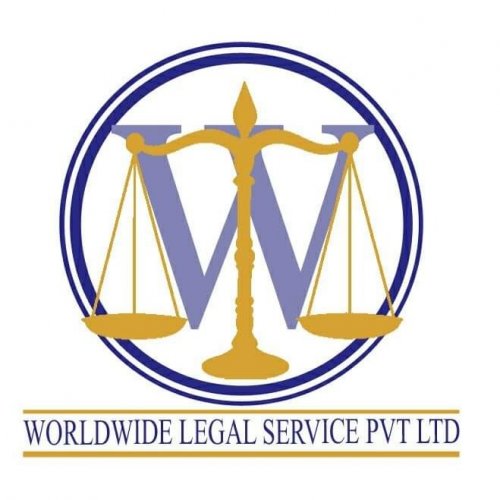Best Public-Private Partnerships (PPP) Lawyers in Kathmandu
Share your needs with us, get contacted by law firms.
Free. Takes 2 min.
List of the best lawyers in Kathmandu, Nepal
About Public-Private Partnerships (PPP) Law in Kathmandu, Nepal
Public-Private Partnerships (PPP) are collaborative arrangements between government agencies and private sector entities for the purpose of financing, building, and operating projects that serve the public good. In Kathmandu, Nepal, PPPs have become increasingly significant in the development of infrastructure such as roads, bridges, water supply systems, hospitals, schools, and energy projects. The city, being the administrative and economic hub of the country, has seen a growing demand for innovative solutions to address public service needs, and PPPs serve as a viable mechanism for leveraging the strengths and resources of both the public and private sectors.
The regulatory framework governing PPPs in Nepal is designed to ensure transparency, accountability, and efficiency while protecting public interests and encouraging private investment. The government has prioritized PPPs as a key strategy for sustainable economic growth and resource optimization, particularly in Kathmandu where infrastructural needs are pressing.
Why You May Need a Lawyer
Engaging in a PPP project in Kathmandu involves navigating a complex web of regulations, contractual obligations, and approval processes. Here are some common situations where legal help can be crucial:
- Drafting and reviewing PPP project contracts
- Understanding the local regulatory requirements and compliance standards
- Assisting with bidding or procurement processes
- Negotiating terms and risk-sharing clauses between public and private entities
- Resolving disputes related to project execution or contract interpretation
- Advising on land acquisition, environmental compliance, or tax implications
- Assisting foreign investors with local law requirements and approvals
- Providing guidance on accessing incentives or concessions offered by the government
- Ensuring the protection of intellectual property or proprietary technology involved in a PPP project
- Advising on exit strategies or transfer of project ownership
Whether you are a private company, an individual investor, or a public body, a qualified lawyer can help safeguard your interests and ensure the smooth implementation of your PPP initiative in Kathmandu.
Local Laws Overview
PPP projects in Kathmandu are primarily regulated by the Public-Private Partnership and Investment Act 2075 (2019), which lays out the legal foundation for such collaborations across Nepal. Key features of local laws relevant to PPPs include:
- Definition of PPPs: The law defines PPP arrangements and sets parameters for what qualifies as a PPP project.
- Establishment of a Central PPP Unit: This unit oversees policy formulation, project evaluation, and monitoring to ensure effective implementation.
- Project Selection and Approval: Guidelines for identifying, selecting, and prioritizing PPP projects that align with the government’s development goals.
- Procurement Process: Transparent procedures for inviting, evaluating, and awarding bids, typically through competitive bidding.
- Risk-Sharing: Mechanisms for distributing risks between public and private partners in a fair and balanced manner.
- Dispute Resolution: Provisions for arbitration and judicial review in case of disputes between parties.
- Land Acquisition and Environmental Compliance: Requirements for obtaining clearances, compensations, and adhering to environmental regulations.
- Incentives and Concessions: Availability of fiscal and non-fiscal incentives to attract investment into PPP projects.
- Foreign Investment Regulations: Guidelines for foreign entities, including requirements related to repatriation of profits and technology transfer.
- Monitoring and Reporting: Continuous oversight by government agencies to ensure projects are executed as per the agreed terms.
Local governments, including the Kathmandu Metropolitan City, may also have specific requirements or guidelines applicable to PPP projects within their jurisdiction.
Frequently Asked Questions
What is a Public-Private Partnership (PPP)?
A PPP is a cooperative arrangement between a government agency and a private sector company to finance, build, and operate projects such as public infrastructure or services that benefit the community.
What kinds of projects are suitable for PPPs in Kathmandu?
Projects like urban infrastructure, transportation systems, water supply, waste management, energy production, healthcare facilities, and education buildings are commonly developed under PPP models in Kathmandu.
Who can initiate a PPP project in Kathmandu?
Both government bodies and private sector companies, including joint ventures, can propose PPP projects. The projects typically undergo a rigorous selection and approval process managed by relevant authorities.
What are the main laws governing PPPs in Nepal?
The Public-Private Partnership and Investment Act 2075 (2019) is the primary legal framework for PPPs in Nepal, supplemented by related regulations and sector-specific statutes.
How is the risk shared in PPP projects?
Risk is allocated based on the capabilities of each party and the project requirements. Contracts clearly outline which risks are borne by the public sector and which are transferred to the private partner.
What is the typical process for getting a PPP project approved?
The process involves proposal submission, feasibility studies, project appraisal, approval from competent authorities, procurement through bidding, contract negotiation, and final agreement signing.
Are there incentives for private investors in PPPs?
Yes, the government can provide incentives such as tax holidays, duty exemptions on imports, access to subsidized land, and other concessions to encourage private investment in PPP projects.
How are disputes resolved in PPP projects?
Contracts usually provide for dispute resolution through arbitration, mediation, or recourse to Nepali courts, depending on the terms agreed upon by the parties.
Can foreign companies participate in PPPs in Kathmandu?
Yes, foreign companies can participate, provided they comply with investment laws of Nepal, including obtaining approvals from relevant government agencies and adhering to local content and employment requirements.
Is it mandatory to hire a lawyer for PPP projects?
While not mandatory by law, it is highly advisable to consult a lawyer. PPP contracts and regulations are complex, and legal assistance helps prevent costly mistakes and ensures compliance with all local legal requirements.
Additional Resources
If you are considering a PPP project or need legal advice, the following resources and organizations in Kathmandu can be helpful:
- Investment Board Nepal (IBN) - The main government body overseeing large-scale PPP and foreign investment projects
- Ministry of Finance, Government of Nepal
- Department of Urban Development and Building Construction (DUDBC)
- Kathmandu Metropolitan City Office for local PPP initiatives
- Nepal Bar Association for connecting with qualified lawyers specializing in PPP law
- Office of the Company Registrar (OCR) for business registration and compliance
- Federation of Nepalese Chambers of Commerce and Industry (FNCCI) for information on private sector participation
Consulting with these organizations or browsing their public notices can provide updates on available PPP opportunities, policy changes, and upcoming projects.
Next Steps
If you are planning to get involved in a PPP project in Kathmandu, here are some practical steps to follow:
- Research your intended project and gather preliminary details about legal requirements, market conditions, and regulatory expectations.
- Identify and consult with a lawyer or legal firm experienced in PPP law in Nepal. They can help you review contracts, understand risk allocation, and comply with local laws.
- Engage with relevant governmental authorities early to clarify application and approval procedures, as well as any incentives available.
- Prepare all necessary documents, including business registration, financial statements, and project proposals, as required for submission.
- Consider joining professional or business networks focused on PPPs to stay informed about best practices and regulatory updates.
Taking a cautious and well-informed approach, with support from qualified legal professionals, will help ensure your PPP venture in Kathmandu progresses smoothly and in compliance with all legal requirements.
Lawzana helps you find the best lawyers and law firms in Kathmandu through a curated and pre-screened list of qualified legal professionals. Our platform offers rankings and detailed profiles of attorneys and law firms, allowing you to compare based on practice areas, including Public-Private Partnerships (PPP), experience, and client feedback.
Each profile includes a description of the firm's areas of practice, client reviews, team members and partners, year of establishment, spoken languages, office locations, contact information, social media presence, and any published articles or resources. Most firms on our platform speak English and are experienced in both local and international legal matters.
Get a quote from top-rated law firms in Kathmandu, Nepal — quickly, securely, and without unnecessary hassle.
Disclaimer:
The information provided on this page is for general informational purposes only and does not constitute legal advice. While we strive to ensure the accuracy and relevance of the content, legal information may change over time, and interpretations of the law can vary. You should always consult with a qualified legal professional for advice specific to your situation.
We disclaim all liability for actions taken or not taken based on the content of this page. If you believe any information is incorrect or outdated, please contact us, and we will review and update it where appropriate.

















